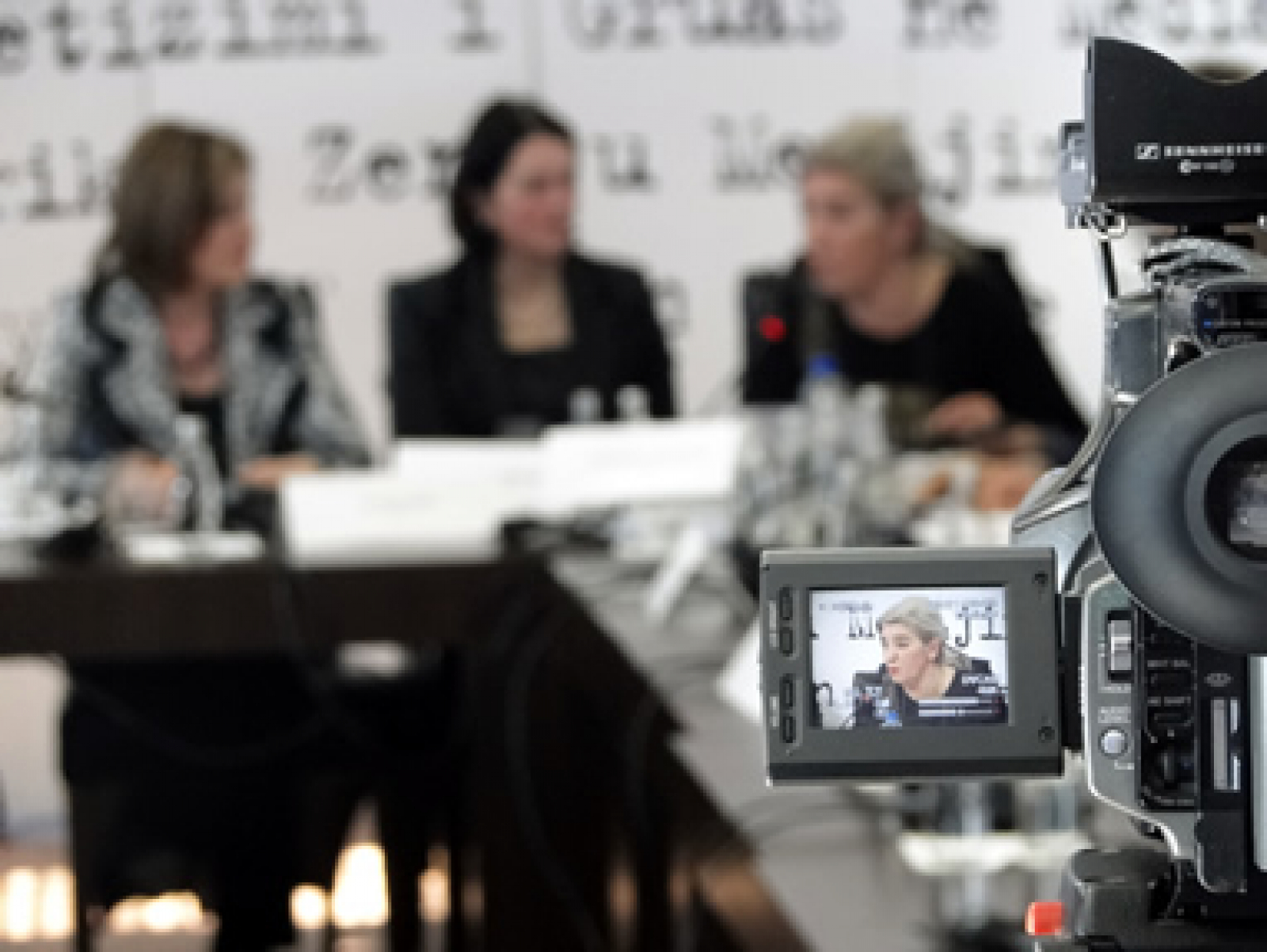
SHARE
When the Kosovar government released its ambassadorial nominations last fall, there was a glaring omission — no women were on the list. A group of women members of parliament (MPs) protested at a news conference, which led the government to increase the number of women nominees to one-third.
But when the national television station reported on the press conference, it played traditional wedding music over what the women were saying, making it look more like a party and distracting from the serious message the women MPs were trying to get across.
This is just one example of how Kosovar women are often portrayed by the media. To address the problem, the Kosovo Women’s Caucus partnered with NDI to bring together journalists and politicians to discuss the depiction of women – especially women politicians — in the media.
“We all know the power the media has,” said Alma Lama, board member of the Women’s Caucus. “Media is the message and the messenger. It has a big impact on politics, the national debate, and above all the lives and mindset of the people who consume it.”
Those in attendance, including editors, reporters, media directors, EU representatives and MPs, discussed some of the challenges women face with media coverage, such as being seen as experts only on “women's issues.”
“A woman is able to speak on energy, the economy, justice, foreign policy, agriculture, transportation or health,” said Teuta Sahatqija, chair of the caucus. But in the current environment, women are “only invited [on television] when talking about soft issues.”
At the end of the meeting, the caucus and journalists agreed that the media would take steps to cover women and men more equally in all coverage — not just women in power, but also average women citizens. Participants asked the media representatives to work to maintain a gender balance both on screen and off by nurturing and promoting women journalists in equal numbers to men. Participants also called on members of civil society organizations to consider including media monitoring as part of their activities to hold the media accountable for unfair or unequal treatment of women and men in the press.
MPs didn’t blame only the media, however, and called on their political parties to suggest women for interviews on ‘hard’ issues. “If I only blame the media that I was not in the debate, I am wrong,” said Safete Hadergjonaj, chair of the budget committee in the Kosovo Assembly and member of the Democratic Party of Kosovo. “I have to blame my party that has not given me the opportunity to be part of televised debates on the budget or the economy.”
The meeting was covered widely by the media, including in Kosovo’s biggest daily newspaper and in a number of television and Internet news stories.
NDI's Kosovo Assembly Strengthening Program is funded by the U.S. Agency for International Development.
Related:
- Kosovar women parliamentarians lead the fight against domestic violence and engage citizens in debate on gender issues»
- Women Social Democrats of Southeastern Europe reach across borders for shared goals»
- Women in the Balkans work together to challenge norms and push through barriers»
Published March 20, 2012


